 Petzlover
Petzlover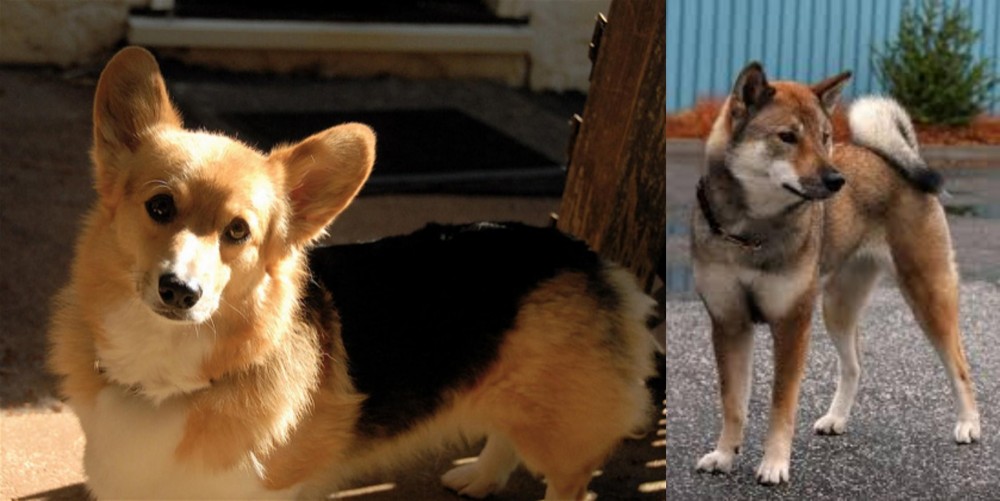 Dorgi is originated from United Kingdom but Shikoku is originated from Japan. Both Dorgi and Shikoku are having almost same height. Dorgi may weigh 41 kg / 90 pounds lesser than Shikoku. Both Dorgi and Shikoku has same life span. Both Dorgi and Shikoku has same litter size. Dorgi requires Low Maintenance. But Shikoku requires Moderate Maintenance
Dorgi is originated from United Kingdom but Shikoku is originated from Japan. Both Dorgi and Shikoku are having almost same height. Dorgi may weigh 41 kg / 90 pounds lesser than Shikoku. Both Dorgi and Shikoku has same life span. Both Dorgi and Shikoku has same litter size. Dorgi requires Low Maintenance. But Shikoku requires Moderate Maintenance
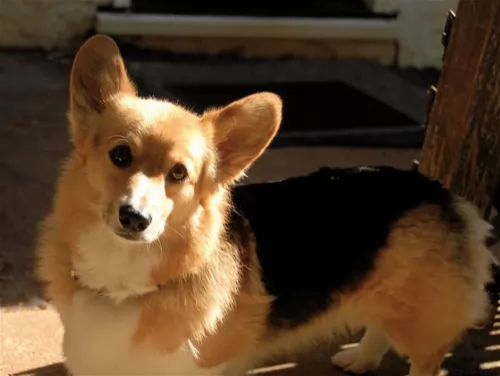 The Dorgi is a designer crossbreed whose origins are not entirely known, however it is a popular breed, being a mix between a Dachshund and a Pembroke Welsh Corgi.
The Dorgi is a designer crossbreed whose origins are not entirely known, however it is a popular breed, being a mix between a Dachshund and a Pembroke Welsh Corgi.
The Dorgi itself is new breed and therefore has a short history, but both dogs used to develop the Dorgi – the Dachshund and the Corgi – have their own unique histories.
The Dachshund originated in Germany in the 1500s and the Pembroke Welsh Corgi originated in the United Kingdom centuries ago.
 The Shikoku is from the Shikoku Island in Japan and they are very much like the Japanese Shiba Inu. There are six native Japanese dog breeds and the Shikoku is medium sized and sits in between the smaller Shiba Inu and the very large Akita Inu. All of the Japanese native breeds are members of the Spitz family. The Japanese have sorted their six breeds into 3 categories by size. Being medium size, the Shikoku is a member of the Shika-inus group. Others in this group are the Ainu Ken, the Kai Ken and the Kishu Inu. There are small differences between the three dogs in the Shika-inus group.
The Shikoku is from the Shikoku Island in Japan and they are very much like the Japanese Shiba Inu. There are six native Japanese dog breeds and the Shikoku is medium sized and sits in between the smaller Shiba Inu and the very large Akita Inu. All of the Japanese native breeds are members of the Spitz family. The Japanese have sorted their six breeds into 3 categories by size. Being medium size, the Shikoku is a member of the Shika-inus group. Others in this group are the Ainu Ken, the Kai Ken and the Kishu Inu. There are small differences between the three dogs in the Shika-inus group.
The Shikoku was bred to be a hunting dog in Kochi Prefecture to hunt boar and deer. Other names for the breed include Kochi-ken and Kishu dog or boar hound. This dog is considered to be the purest of the Japanese native dogs or Nihoken. They are today very , very rare. There are very few outsides of Japan, but some in North America are attempting to save the breed.
The are od Kochi Prefecture is a mountainous region with rough terrain that anyone outside of the area would have a hard time accessing. That is why the Shikoku is considered to be so pure as they were pretty well isolated in the mountains. The breeders were also isolated by the mountains and there was very little interbreeding. Although breeding the same dog, these different groups developed different lines of the Shikoku.
Documentation tells us that the number of originals lines was just two and these were the Western and Eastern Shikoku. The Western dog was known as the Mount Ishizuchi Shikoku and the Eastern as the Mount Tsurugi Shikoku. Within these two lines of Shikoku there are additional strains.
Within the Eastern line there is the Tokushima (lya) and the Koci-Aki strains. Within the Western line there is the Hata Uwahara, the Ehime-ken Shuso-gun and the Honkawa. Among these lines and strains, there are different coats and different colors; some heavier and some taller, but all figure into the development of the breed.
Finally, in the Showa Era the Japanese established the Dog Protective League and they began collecting the native dogs from around the country. They protected them so that the breed will go on. The Shikoku is today recognized as Foundation Stock by the AKC and it is fully recognized by the Japan Kennel Club, the Canadian Hound Club and the Shikoku has been declared a living Japanese “natural monument”.
Two bloodlines became the way the Shikoku were know after the war – the Honkawa and the Hata lines The Honkawa line were the descendants of the Choshun-go and the Hata line were the descendants of the Matsukaze-go. They bred the lines separately until 1955, when they mixed them to make the breed stronger. They are no longer considered separate in any way.
Because they are such primitive dogs, the Shikoku are good watch dogs and quite reserved with strangers. They need a lot of socialization to be a family pet but once they are, they make great companions. Intelligent, quick to learn and eager to please. Of the two lines of Shikoku dogs from the Western strains, the current Shikoku owes much of its current development to the Honkawa and Hata strains.
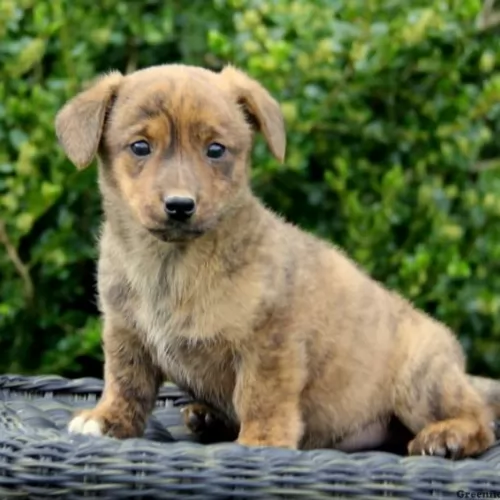 The Dorgi is known for his long body, short legs and the erect ears of the corgi. He is a small dog, measuring roughly 20-30cm in height and weighing in the region of 6 – 12kg.
The Dorgi is known for his long body, short legs and the erect ears of the corgi. He is a small dog, measuring roughly 20-30cm in height and weighing in the region of 6 – 12kg.
Many people also refer to him as the sausage dog. The look of your Dorgi can depend quite a bit on whether he looks more like a Corgi or a Dachshund, so for instance the coat can be short and smooth, or thick and coarse.
They can surprise you with their looks, and some are born with long tails while others are born with bobtails. The coat comes in many colors too, from tan to brown to black and white or a mixture of these colors.
The Dorgi is full of the joys of life, just loving all the attention he gets from his human family. Of course, in return for this affection, he offers love, loyalty and plenty of fun and games.
He is an energetic breed too and is always ready to join in any games with the children in the home as well as with cats and dogs living in the home too.
Training and socialization will also be needed for the Dorgi who is intelligent and easy to train. He has wonderful behavior when trained, being obedient and relaxed around visitors to your home.
Social and sweet, this is one little dog who is guaranteed to make a wonderful pet and companion, as he loves human companionship and never wants to be left alone for too long. He is alert too, so while he is small and no real threat to an intruder, he is willing to do what it takes to protect his human family and to bark to alert you.
 Today’s Shikoku is a medium sized breed with a Spitz like body – square with a head that is wedge shaped. The ears are pointed, and the tail is curved and feathered. They have arched toes and hard pads with dark, hard nails.
Today’s Shikoku is a medium sized breed with a Spitz like body – square with a head that is wedge shaped. The ears are pointed, and the tail is curved and feathered. They have arched toes and hard pads with dark, hard nails.
The two lines of the Shikoku are slightly different in built and look. The Honkawa strain is slender and athletic; agile and single coated. They have dark eyes and most of them are black and tan.
On the other hand, the Hata strain is much heavier boned, with the front more muscular than the rear. They have small ears, a wide skull and a strong undercoat. His eyes are shaped differently than the Honkawa. Their coats are also mostly red and tan.
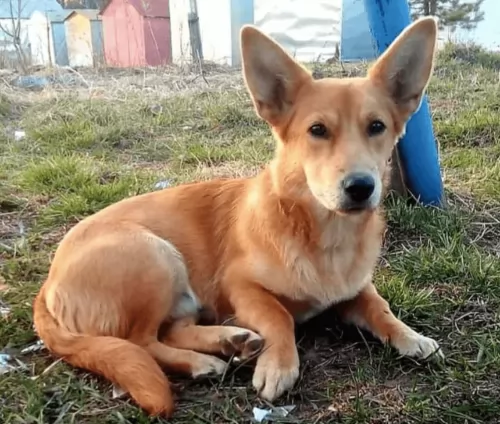 The Dorgi is such a sweet little designer breed of dog that happens to also be low maintenance. Apart from being a little dog full of energy and attitude, he is loving and loyal as a family pet too, being gentle around children and making a splendid pet.
The Dorgi is such a sweet little designer breed of dog that happens to also be low maintenance. Apart from being a little dog full of energy and attitude, he is loving and loyal as a family pet too, being gentle around children and making a splendid pet.
He isn’t going to eat you out of hearth and home either and he is a fairly healthy breed as well.
When you bring a Dorgi into your home, you’re bringing in a whole lot of happiness as he is an awesome family member who wants to be counted in on everything the do.
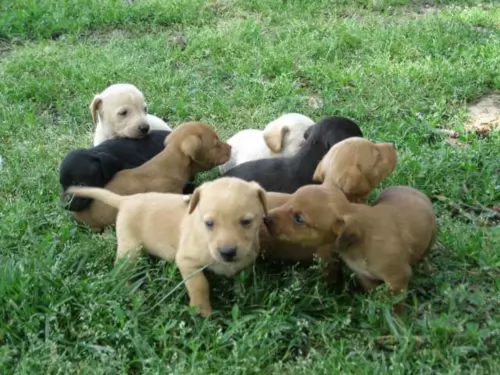 Because the Dorgi is a hybrid breed, he promises to be quite healthy, but on the other hand, it could be that he inherits some of the common health problems associated with either the Corgi or the Dachshund.
Because the Dorgi is a hybrid breed, he promises to be quite healthy, but on the other hand, it could be that he inherits some of the common health problems associated with either the Corgi or the Dachshund.
Obesity is always a problem with a small dog, as they’re so sweet, you just want to be popping treats into their mouths all the time. It is important to follow a healthy diet for your pet however if you want to stave off common dog disorders.
An obese dog faces a shorter life expectancy, and some of the major health issues that an obese Dorgi has to contend with is diabetes, osteoarthritis, high blood pressure and cancer among others. Certainly better, healthier pet food choices can help save you money on vets fees.
Diabetes in canines is just as serious as in humans and its a glucose-insulin complication where the pancreas isn’t producing enough insulin.
Sugars build-up in the blood and these can cause damage to your dog’s eyes, heart and kidneys. You may notice your pet gaining weight, being more thirsty, being tired and having cloudy eyes which could be indicative of cataracts. Take your pet to the vet as insulin shots may be required.
 Being isolated as they were, the Shikoku was a fairly healthy breed, no genetic testing has been done. Despite this they suffer a few of the same potential issues as other breeds their size.
Being isolated as they were, the Shikoku was a fairly healthy breed, no genetic testing has been done. Despite this they suffer a few of the same potential issues as other breeds their size.
Otherwise this is an agile and hardy breed with no known congenital health issues.
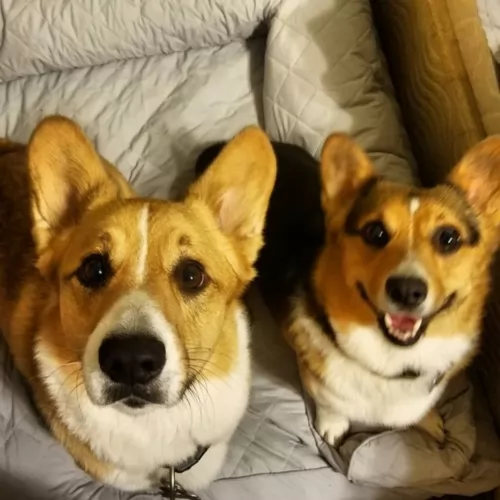 Your Dorgi’s coat will be shortish, and shedding is minimal so a good brush twice a week will be perfect for this pet of yours, and he will love the attention you give him while doing so.
Your Dorgi’s coat will be shortish, and shedding is minimal so a good brush twice a week will be perfect for this pet of yours, and he will love the attention you give him while doing so.
He is an active breed so he will require regular exercise. Take him with you on your walks. Even if you have a small garden, he’ll love fetching a ball for you.
If you give your Dorgi commercially manufactured dog food, remember to be guided by the feeding recommendations to avoid obesity.
Its always a good idea to add in some raw meat to his diet to keep his nose wet and his skin free from being dry and itchy. You can also add in some cooked brown rice, vegetables and chicken for variety.
Always ensure that a bowl of fresh water is constantly available.
 Feeding the puppy Be careful with feeding the puppy and adult as the breed is known to have a tendency toward obesity. Fresh food is better as it is what the breed has been used to, but a high quality puppy kibble is acceptable. Feed three times per day.
Feeding the puppy Be careful with feeding the puppy and adult as the breed is known to have a tendency toward obesity. Fresh food is better as it is what the breed has been used to, but a high quality puppy kibble is acceptable. Feed three times per day.
2.Feeding the adult He is a high energy dog so feed a high energy food designed for a medium sized dog. Feed in two meals each day.
4. Games and Exercises You will need a fenced yard for this breed and time to play with them. If not, you would need time to walk her more than once a day. They love to play indoors as well, chasing balls, learning new things. The breed make great companions for hiking, swimming, play frisbee or catch outside. They do well at agility, rally, obedience and flyball.